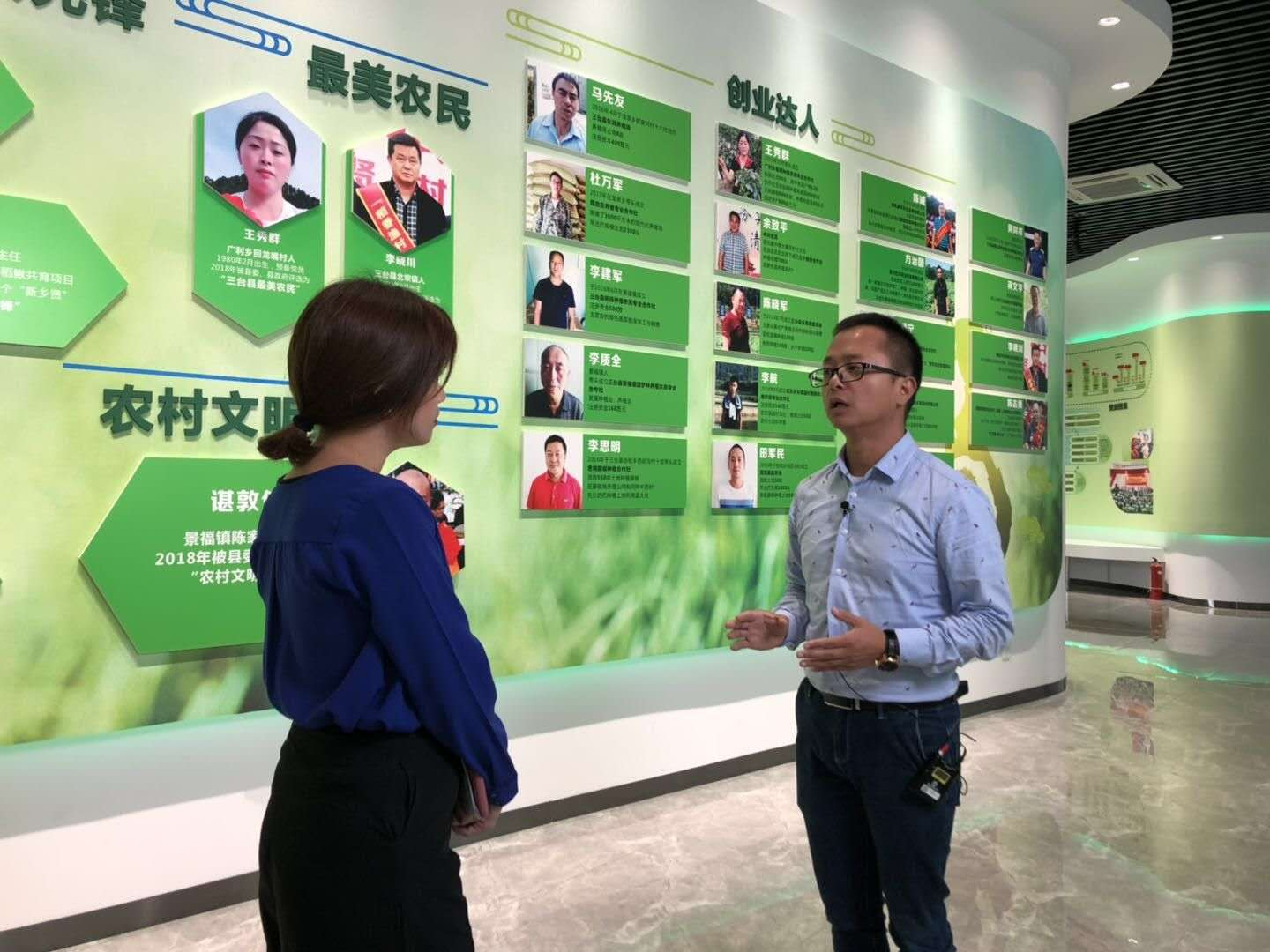
Zhao Yi, Deputy Director of Mianyang City's rural pilot reform zone, speaks with CGTN. (Photo: CGTN )
Innovative financing methods are taking place in rural villages in China, including the concept of a “grassroots bank”. Also known as a financial cooperative, it's when resources – in terms of money – are pooled together to serve a greater use.
In Wangjiayan Villlage in Santai County of southwestern China's Sichuan province, the local “grassroots bank” has disbursed 360,000 yuan (51,954 US dollars) to date, since it was established in 2015.
"We have helped poor farming households increase production and income," said Luo Xiaoming, director of the Wangjiayan Village Committee.
Funds from the village's "grassroots bank" are pooled mostly by the local city and county governments, and a minority pool from the villagers.
"Farmers need not pay interest for the first three months, and interests thereafter are at a discounted rate from the country's benchmark rate," said Luo.
This has prompted villagers to pay back their loans as soon as possible. This is because, firstly, they can only borrow more once they have paid back their previous loan, Luo said.
"Secondly, if they return it within three months and re-borrow it thereafter; they are still entitled for the loan at zero interest rate," he added.
Another reason why the "grassroots bank" has yet to have a case where the farmers are unable to pay back their loans: "We also keep close tabs with the progress of their industrial production," Luo explained.
"You're eligible for a loan if you're under the poverty line. If not, you have to pay to join the co-op as a member. No guarantee is needed."
The "grassroots bank" caps each loan disbursement at any amount between 500 to 10,500 yuan.
Farmers benefit from the "grassroots bank"
Liang Shanyuan, who breeds and sells pigs for a living, said being able to borrow from the grassroots bank has changed his life.
"I didn't have enough money for feed. Feed costs require 25,000 a year – of which corn accounts for the bulk of it," he said.
After deducting costs, his total net income per household – including his son's – stood at 15,000 yuan a year. "If I don't earn 20,000 yuan a year, I can't live well."
"I will still continue to raise pigs for as long as I can. But hopefully I'll eventually not rely on the state, we must be self-reliant," Liang said.
Liang has borrowed money four times in the past three years – each time at only a few thousand yuan.
Meanwhile, for Zhao Zhongyong, the "grassroots bank" has helped kick-start his venture of planting the Chinese Herb "Mai Dong" farm.
After testing out on one small part of land last year and saw success, he borrowed 5,000 yuan from the bank and expanded his scale four times to 0.7 hectares – hiring over 300 workers to help manage the
"I will start to sell these herbs in March next year and will be able to pay back my loan then," Zhao said, adding that he is not worried about demand as he is able to sell it to local markets.
To effectively lift a village out of poverty, the role of rural commercial banks is still needed.
In 2017, an industrial poverty alleviation loan product was rolled out at Santai pilot reform zone, which covers parts of the county.
Jointly launched with Santai Rural Commercial Bank, this product boasts lower interest rates, simpler procedures, and longer loan life cycles.
This time, however, the commercial bank is able to lend out ten times more from the reform zone's initial fund of three million yuan – that's 30 million – supported by the state.
Zhao Yi, deputy director of Mianyang City's rural pilot reform zone, said the loan product mainly focuses on key advantageous industries, in line with the industrial planning of the reform zone.
"This includes branded roosters and pepper, as well as revitalizing our citrus industries," Zhao said.
"By the end of September 2018, we have invested three million yuan in the fund, and disbursed over 11 million in loans, to 10 professional cooperatives. This has reached over 1,000 households, including 300 poor households, and brought in an expected revenue of 200 million.”
Wang Dunxue, director general of Phoenix Farmers' Cooperative Society, said he has benefited from this poverty alleviation loan.
"We were allocated a million yuan from the poverty alleviation fund, to be utilized in phases. This is mainly used to construct our chicken farms, spanning over 13 hectares," Wang said.
"The government subsidizes the interest of this loan, thankfully, as we will not be able to kick-start this project on our own," he added.
Wang hopes to expand the production scale of his chicken farm in the future, to provide employment to more poor households so they can get rid of poverty.


